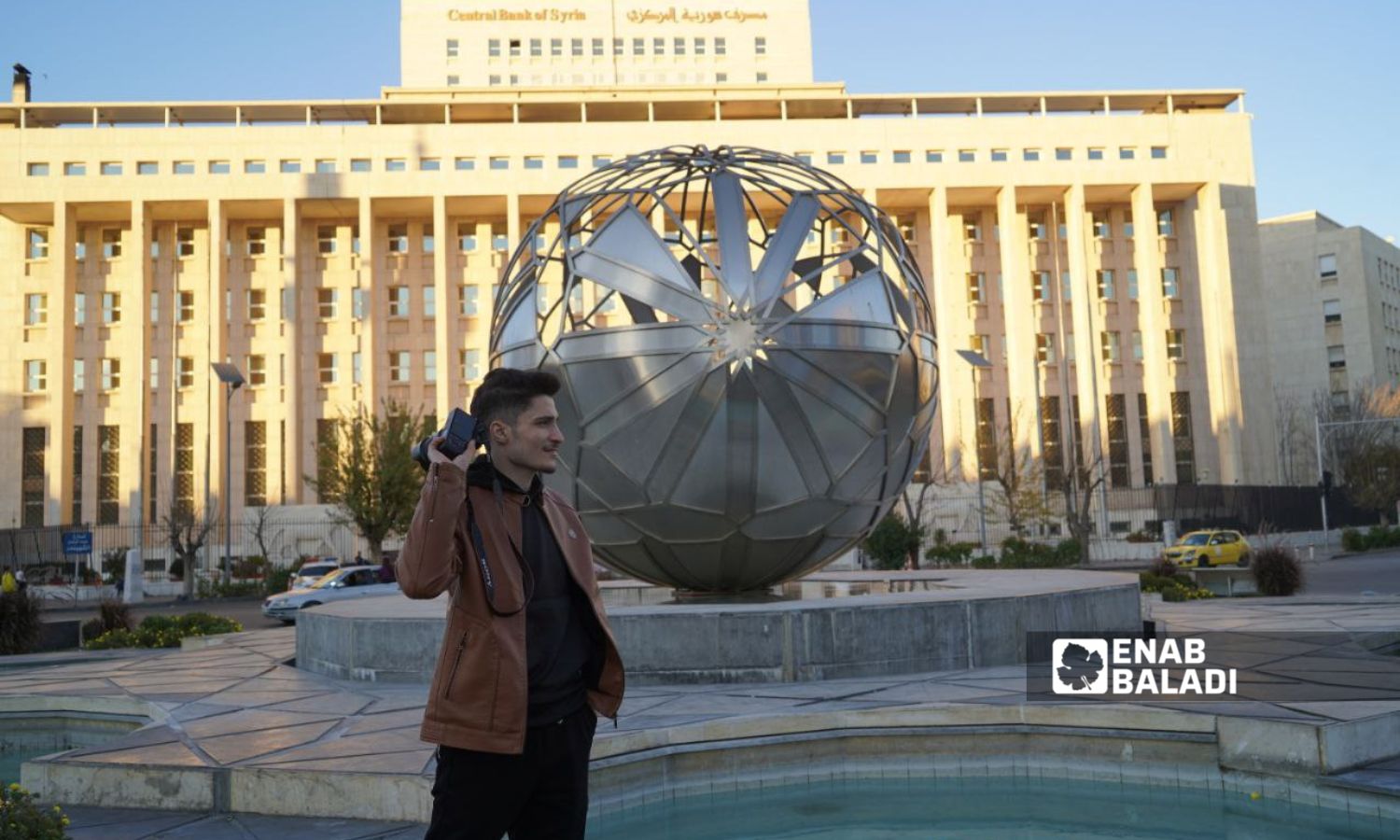The suspension of several decisions that were in effect before the escape of the ousted regime’s leader, Bashar al-Assad, on December 8, has halted most sources of foreign currency revenue for Syria’s treasury.
Amid conflicting figures about the size of foreign currency reserves or the amount available in the treasury, questions arise about the ability of the caretaker government to secure Syria’s foreign currency needs without plunging the country into a financial crisis that would compound its existing economic woes.
Sources Dwindling
The previous regime’s government relied on several sources to secure foreign currency. Chief among them was a policy that required Syrians and equivalent individuals entering Syria to exchange $100 upon entry through land or air border crossings.
The treasury was also supplemented by funds from “military exemption fees,” imposed on young men eligible for conscription, as well as by compelling merchants to transfer and freeze their funds in the Central Bank of Syria under a mechanism that merchants frequently complained about, called the “Import Financing Platform.”
Revenue from transactions conducted by Syrians at the Ministry of Foreign Affairs and its consulates, such as document authentications and the issuance or renewal of passports, was another primary source of foreign currency. However, these transactions have been halted since Assad’s escape, with no announced date for their resumption.
Conflicting Figures: How Much Money Do We Have?
The Syrian government is still compiling and auditing data, amidst conflicting reports about the foreign currency reserves held by the Central Bank of Syria, though there is consensus that the foreign exchange reserves have nearly reached zero.
On December 11, a day after formally assuming his duties, the head of Syria’s caretaker government, Muhammad al-Bashir, stated that the Central Bank’s coffers contain only Syrian pounds, “which are worthless,” adding that the Central Bank of Syria has no foreign currency reserves.
In an interview with the Italian newspaper Corriere della Sera, al-Bashir said, “We don’t have any foreign currency. As for loans and bonds, we are still gathering data. So yes, we are in a very dire financial situation.”
Al-Bashir’s statements contradict a report by Reuters, which cited four unnamed sources described as “knowledgeable of the situation.” The report claimed that the Central Bank of Syria still holds 26 tons of gold in its vaults—the same amount it possessed before the Syrian revolution began in March 2011.
However, Reuters sources confirmed that the bank has only a small amount of foreign currency reserves, estimated at $200 million, though one source mentioned that the amount could reach several hundred million dollars.
The previous regime’s government stopped sharing financial information with the International Monetary Fund (IMF), the World Bank, and other international organizations shortly after Assad’s crackdown on peaceful protests began.
Reuters did not receive a comment on the reserves from the caretaker government or the Central Bank’s management.
The report noted that thefts targeting the Central Bank after the fall of Bashar al-Assad’s regime on December 8 did not affect the main vault, which is bomb-resistant and requires three separate keys, held by different individuals, as well as a complex code to open it.
This article was translated and edited by The Syrian Observer. The Syrian Observer has not verified the content of this story. Responsibility for the information and views set out in this article lies entirely with the author.


